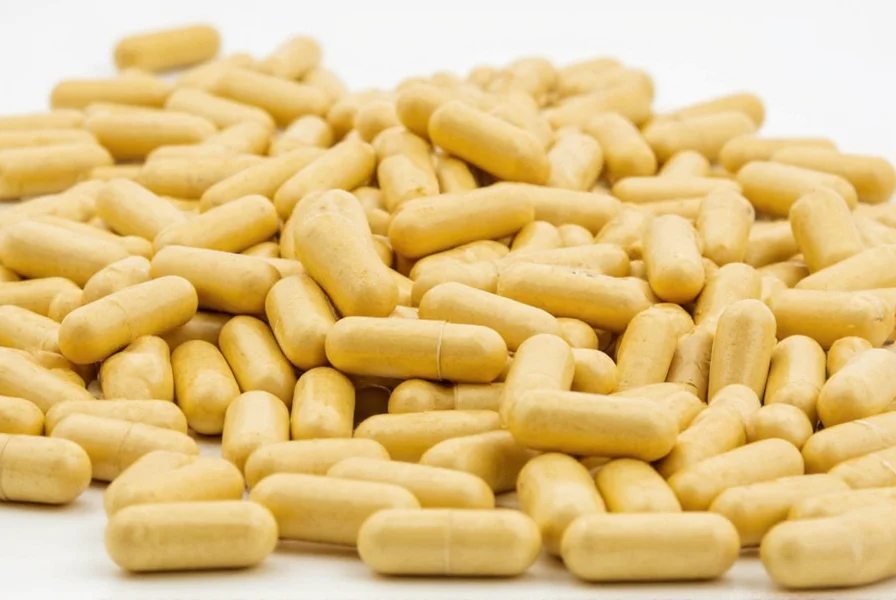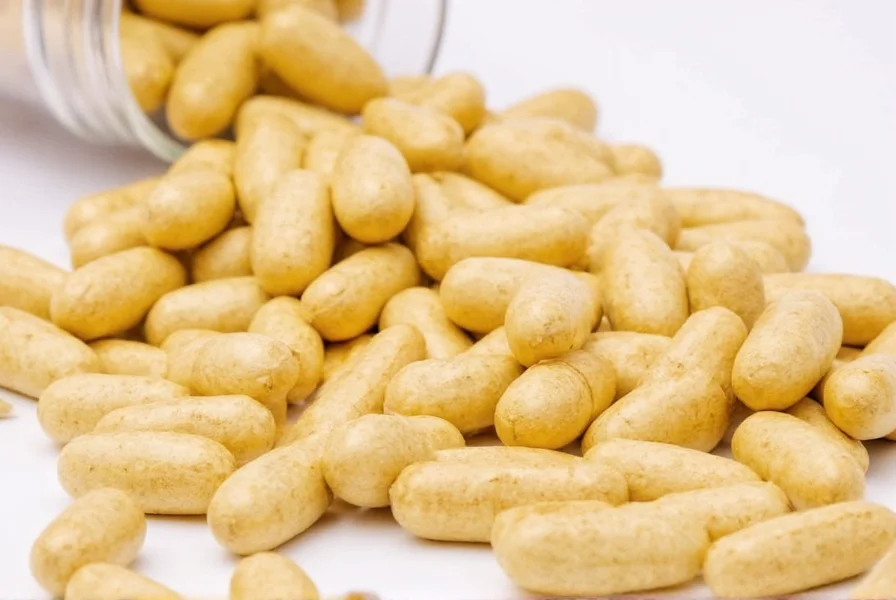Ginger capsules offer a convenient, standardized way to access the therapeutic benefits of Zingiber officinale. Unlike fresh ginger where potency varies, quality supplements provide consistent concentrations of bioactive compounds including gingerols and shogaols. This standardization makes dosing more precise for specific health applications.
What Science Says About Ginger Capsule Benefits
Multiple clinical studies validate ginger's effectiveness for specific conditions. A comprehensive 2013 review in Nutrition Journal analyzed 107 studies, confirming ginger's anti-nausea properties are particularly well-documented. For motion sickness and morning sickness, doses of 1-1.5g daily significantly reduced symptoms compared to placebo.
Research on ginger capsules for inflammation shows promising results. A 2015 study in Arthritis found participants with osteoarthritis taking 500mg ginger extract twice daily reported 30% less pain after three months. The anti-inflammatory mechanism involves inhibiting COX-2 enzymes similar to NSAIDs, but with fewer gastrointestinal side effects.

Comparing Ginger Supplement Forms
| Form | Standardized? | Active Compound Range | Best For |
|---|---|---|---|
| Ginger capsules | Yes (typically) | 5-10% gingerols | Precise dosing, nausea relief |
| Fresh ginger | No | 0.5-3% gingerols | Cooking, tea preparation |
| Ginger powder | Rarely | 1-4% gingerols | Baking, smoothies |
| Ginger tincture | Sometimes | Varies by extraction | Quick absorption |
Optimal Dosage Guidelines
The effective ginger capsules dosage for inflammation typically ranges from 500-1500mg daily, divided into two doses. For nausea prevention, studies show 250-1000mg taken 30-60 minutes before potential triggers works best. Higher doses up to 2000mg daily appear safe for short-term use but may cause mild digestive upset.
Timing matters when taking ginger supplements. Consuming capsules with food enhances absorption of fat-soluble compounds while reducing potential stomach irritation. For motion sickness prevention, take your dose 30 minutes before travel. Those using ginger capsules for pregnancy nausea should consult their obstetrician about appropriate timing and dosage.
Safety Profile and Potential Interactions
Ginger supplements demonstrate excellent safety in clinical trials, with most side effects being mild. The most common issues include heartburn, mouth irritation, and diarrhea at doses exceeding 4g daily. People with gallstones should consult a physician before use, as ginger may increase bile production.
Significant drug interactions require attention. Ginger possesses mild anticoagulant properties, so combining ginger capsules with blood thinners like warfarin requires medical supervision. Those managing diabetes should monitor blood sugar closely, as ginger may enhance insulin sensitivity. Always disclose supplement use to your healthcare providers.

Choosing Quality Ginger Supplements
Not all ginger capsules deliver equal benefits. Look for products specifying gingerol content (minimum 5%) and standardized extracts. Third-party testing seals from USP, NSF, or ConsumerLab indicate verified potency and purity. Avoid products with unnecessary fillers or artificial additives.
The manufacturing process affects efficacy. Supplements using supercritical CO2 extraction preserve more active compounds than solvent-based methods. Enteric-coated capsules prevent stomach breakdown, allowing more ginger compounds to reach the intestines where absorption occurs. For those wondering how long does it take for ginger capsules to work, effects for nausea typically appear within 30-60 minutes, while inflammation reduction may require 2-4 weeks of consistent use.
Evidence-Based Applications
Clinical evidence supports specific uses for ginger capsules:
- Nausea management: Particularly effective for pregnancy-related nausea (1g daily reduced symptoms by 60% in one trial) and chemotherapy-induced nausea
- Muscle recovery: 2g daily reduced exercise-induced muscle pain by 25% in a Journal of Pain study
- Osteoarthritis support: 500mg twice daily showed significant pain reduction after three months
- Digestive health: Accelerates gastric emptying, helpful for functional dyspepsia
While popular for colds and immunity, evidence here remains limited. Ginger's antioxidant properties may support general health, but don't expect dramatic immune boosts from supplements alone.
When Ginger Capsules May Not Help
Despite widespread claims, research doesn't strongly support ginger capsules for:
- Weight loss (minimal metabolic impact)
- High blood pressure management (inconsistent results)
- Cholesterol reduction (effects too small to be clinically significant)
- Cancer treatment (no evidence as standalone therapy)
Understanding these limitations prevents unrealistic expectations. The scientific evidence on ginger supplements shows clear benefits for specific applications but not the miracle cure some marketing suggests.
Practical Usage Recommendations
For nausea prevention: Take 250-500mg 30 minutes before potential triggers For inflammation management: 500mg twice daily with meals For muscle soreness: 1000mg daily, starting 24 hours before intense exercise Maximum safe daily dose: 4000mg (consult physician for long-term high-dose use)
Track your response for 4-6 weeks. If no improvement for your specific concern, ginger capsules likely won't help your particular condition. Always prioritize addressing root causes rather than relying solely on symptom management.
Frequently Asked Questions
How quickly do ginger capsules work for nausea?
Ginger capsules typically begin reducing nausea within 30-60 minutes when taken preventatively. For pregnancy-related nausea, consistent daily dosing (1-1.5g) shows maximum benefit after 1-2 weeks. Effects are faster when taken before nausea onset rather than after symptoms begin.
Can I take ginger capsules while pregnant?
Most studies indicate ginger capsules are safe during pregnancy for nausea management at doses up to 1g daily. A comprehensive review in Obstetrics & Gynecology found no increased risk of miscarriage or birth defects. However, always consult your obstetrician before starting any supplement during pregnancy, especially if you have a history of bleeding disorders.
What's the difference between ginger root extract and gingerols?
Ginger root extract contains the full spectrum of compounds from ginger, while gingerols specifically refer to the primary bioactive compounds (6-gingerol, 8-gingerol, 10-gingerol). High-quality ginger capsules standardize for total gingerol content (typically 5-10%), ensuring consistent potency. Extracts without standardized gingerol levels may vary significantly in effectiveness.
Do ginger capsules interact with blood pressure medication?
Ginger may modestly lower blood pressure through calcium channel blocking effects. While significant interactions with blood pressure medications are uncommon, those taking antihypertensives should monitor their blood pressure when starting ginger supplements. Consult your physician if you're on medication for hypertension, as dosage adjustments might be necessary.
How should I store ginger capsules to maintain potency?
Store ginger capsules in their original container away from light, heat, and moisture. A cool, dark cupboard maintains potency better than bathroom storage where humidity fluctuates. Properly stored, most supplements retain effectiveness for 2-3 years. Check for any unusual odor or discoloration which might indicate degradation of active compounds.











 浙公网安备
33010002000092号
浙公网安备
33010002000092号 浙B2-20120091-4
浙B2-20120091-4